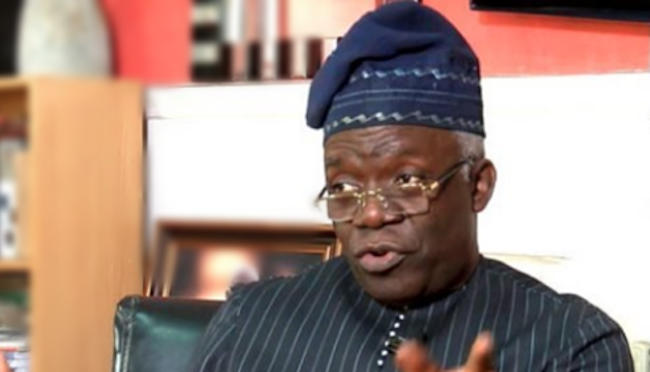News
Soldiers’ Killing: It’s illegal for military to declare civilian suspects wanted, Falana says

Human rights lawyer, Femi Falana has warned the army against declaring suspects wanted over the killings of soldiers in the Okuama community in the Ughelli South Local Government Area of Delta State.
Falana was reacting to the decision of the Defence headquarters to declare wanted eight persons in connection with the killing of the soldiers.
“The decision of the defence headquarters to declare the murder suspects wanted is completely illegal. Let the federal government direct the defence headquarters to hand over the investigation of the suspects involved in the gruesome murder of the 17 officers and soldiers. It ought to be pointed out that murder is not a military offence to warrant investigation by the defence headquarters. If the federal government fails to call the defence headquarters to order, the case concerning the tragic murder of the soldiers will be completely bungled”.
Ripples Nigeria reports that 17 military personnel comprising a lieutenant colonel, two majors, one captain, and 12 soldiers were killed while on a “peacekeeping mission” in the Okuama community on March 14.
Commenting on the wanted lists published by the Nigerian army, Falana warned the military not to bungle the case of the slain soldiers.
He said: “The authorities of the armed forces should be made to realise that the military cannot arrest, detain, investigate and charge civilian suspects with any offence whatsoever.
Read also: Top 10 stories from across Nigerian Newspapers, Friday , March 29, 2024
“In Dr Issa Perry Brimah v Nigerian Army, Justice Ijeoma Ojukwu held that ‘It must be stated here without equivocation that the defendant [Nigerian Army] has no right to declare the plaintiff wanted without following the appropriate procedure.’
“The Judge further said that the defendant cannot arrest the plaintiff arbitrarily without making a formal report to law enforcement agency with the mandate to enforce law and order. Otherwise, it would transmute to self-help. The duty of the defendant is to make a formal report to the appropriate authority like the police and await the outcome.
“In Miss Grace Anita Paul v. The Chief of Army Staff, the Army, Inspector General of Police & the Nigerian Police Force, the Federal High Court held that the Nigerian Army lacks the power to arrest, investigate and hold in custody, anyone who is not subject to the Armed Forces Act or any other military law. Justice Taiwo Taiwo, on Wednesday, warned the military not to usurp the powers of the Nigerian Police under Sections 4 and 84 of the Police Act which empowers the police to detect and investigate crime.
“We have also read the 8 people alleged to be involved in the cruel murder of the soldiers have been declared wanted by the Defence Headquarters it is trite law that the police and security agencies lack the power to declare any suspect wanted without a court order. In Benedit Peters v Economic and Financial Crimes Commission, a high court in Abuja ruled that the Economic and Financial Crimes Commission (EFCC) lacks the powers to declare anyone wanted without obtaining a court order or charging the suspect with an offence.
“The presiding judge, Justice Othman Musa ruled that though the EFCC could declare as wanted persons who fail to honour its invitation for investigation, it could only do so if it obtains a court order for that purpose. So, the decision of the defence headquarters to declare the murder suspects wanted is completely illegal”, he said.
Join the conversation
Support Ripples Nigeria, hold up solutions journalism
Balanced, fearless journalism driven by data comes at huge financial costs.
As a media platform, we hold leadership accountable and will not trade the right to press freedom and free speech for a piece of cake.
If you like what we do, and are ready to uphold solutions journalism, kindly donate to the Ripples Nigeria cause.
Your support would help to ensure that citizens and institutions continue to have free access to credible and reliable information for societal development.
























